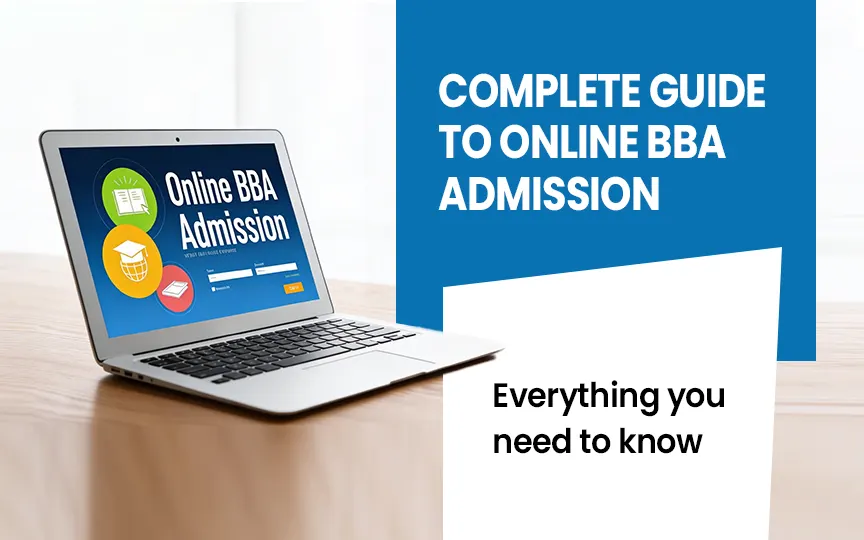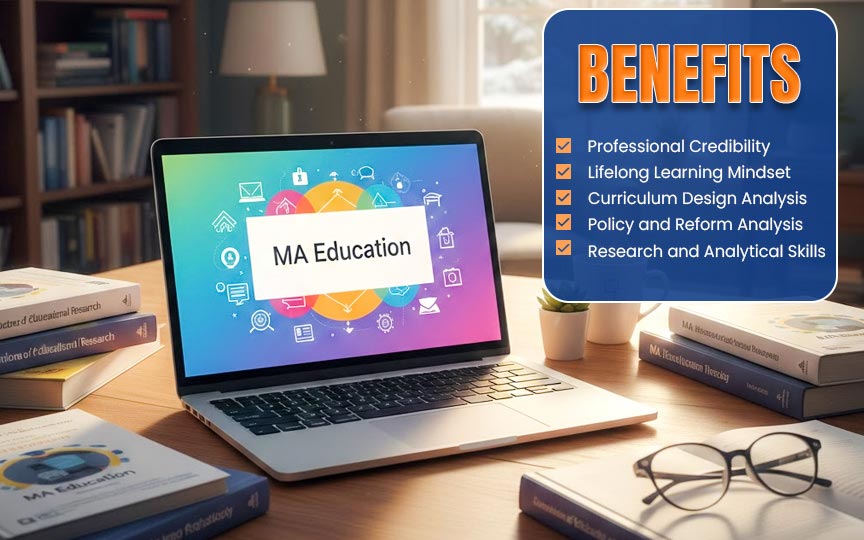Students who aspire to build their skills and gain competency to get a high-paying job can consider an online bachelor’s degree in India. This decision will help you to gain professional experience while studying and build time management skills to balance work and life efficiently. Choose the flexibility, affordability, and global learning opportunities with your online degree course. Finding UGC-approved online degree courses in India is available online with accreditation of NAAC A+, which are recognized by employers to begin your career and enhance your academic knowledge.
In this blog, you will learn about which career or degree course is best for you after 12th. What you should look for before enrolling in an online degree course. Focus on the skills that can help you grow in a professional setting.

What Makes a Good Online Program Choice Post Senior Secondary?
- Understand Your Interests and Strengths: Before passing your 12th, you should identify your interests, skills, and career aspirations. Which course should you pick for your online bachelor’s degree to achieve your desired career goals? Your interest in gaining knowledge of diverse specializations, dedicated technical subjects, or organizational techniques to build business skills. Choose wisely about the suitable career paths related to the offered online degree program.
- Explore Popular Online Degree Options: You should evaluate the set of bachelor’s degree options offered by online universities and categorize them to choose the right program for your preferred career path. You should select the bachelor’s category and the options available with online education to choose the one preferred for your higher education.
- Bachelor’s Program: For online education, universities prefer some of the popular courses to provide help to working professionals and students preparing for competitive exams to manage their academic and exam-oriented knowledge.
- Master’s Program: Students who want to earn a postgraduate degree relevant to their graduation subjects or for a career change option, with the available options of technical and management courses to choose a suitable professional career and boost their financial prospects.
- Ensure Your Online Degree is Accredited: UGC and NAAC A+ are mandatory to offer online education. You should check the details of the university offering online courses, which should be affiliated and have an online presence with a remarkable student strength, to choose the best one for you. You should check the certifications available on the online university website.
- Check and Compare the Fee: Learn about the bachelor’s courses available online, and download the brochure to check the course fee and compare with the courses provided in a program to evaluate the suitable one to achieve your career goals. You should also check the program timeline and its extension period to plan your studies along with your job. You should also look for scholarship options to get financial aid.
- Research about Course Curriculum: Bookmark the online universities’ pages and further the selected course pages to learn about the course curriculum and compare the common subjects and different subjects offered to analyze the courses offered for your knowledge and skill building. Evaluate the curriculum with the skills gained from the specific subject course mentioned to focus on your knowledge and skill-building.
- Learn about Course Delivery: The online mode for your virtual education provides learning resources and several other things to consider when understanding the course delivery with the specified LMS guide shared by online university counselors or the page available on the website to give an idea about the access to the learning resources and plan your study accordingly. Schedule of live classes, assessment deadlines, exam schedule, and much more. Consult with counselors to clear doubts and for other assistance offered during enrollment in the course.
- Analyze Career Opportunities: Analyze the jobs offered after completing graduation and a suitable designation for your preferred skill set or knowledge to build a career in the chosen field. Discuss with counselors about the internship and placement opportunities, and prefer the course that offers highly demanding job roles for your enhanced career. Analyze your skills and compare them with the opportunities and competencies to select the one with the highest pay scale and shape the required skills.
- Read Students’ Reviews: You should read the students’ testimonials to know their learning experience and how it turned beneficial for the learners and employed students. Read students’ reviews to analyze the suitable career and online university for your bachelor’s and master’s degree programs. The process of lateral entry and how to take admission to the selected course after completing the diploma program.
- Consider Technical Requirements: Consult with counselors about the applications and digital devices required to study online, and equip the tools and install strong internet connectivity to learn hassle-free. You should collect the tech gadgets to install and study accordingly. Log in with the student login credentials to get access to learning materials to study and submit the assignments.
- Student Support: The support of counselors to help you with the admission process and details about the bachelor’s courses can help you gain insight into the support for other technical issues while taking virtual lessons and uploading documents, and other issues.
- Consult with Counselors: Students should communicate with the counselors to get career guidance and course offerings to choose the best one for your higher studies. Get to know about the admission process, fee structure, learning resources, scholarships, and various other instructional methods to enroll in an online course.

Final Thoughts
Choosing a career after 12th seems difficult; with research techniques and evaluating the career requirements, you can help define your career goals and a suitable degree program to achieve them. Students should focus on their career priorities to find, enroll in, and learn to fulfill their academic and career goals. You can also choose diploma options for your career preference to get lateral entry to the bachelor’s program after gaining industry-relevant insight. This can help you learn job skills and enhance academic skills.







